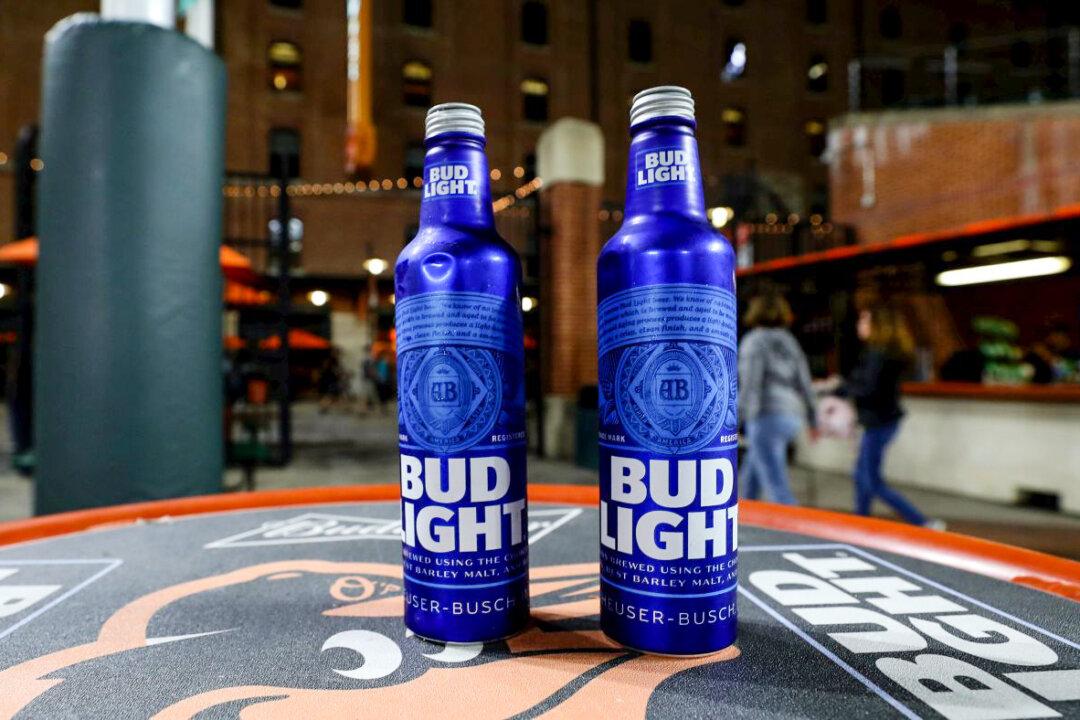New industry data show that Bud Light sales plunged in April amid calls for a boycott by critics of the brand’s engagement with transgender influencer Dylan Mulvaney, which comes as Anheuser-Busch CEO Michael Doukeris blamed “misinformation” for the backlash.
Sales volumes of Bud Light fell by a whopping 21.4 percent in the four weeks ended on April 29, according to retail scanner numbers cited by Beer Business Daily that were based on Nielsen IQ data.





